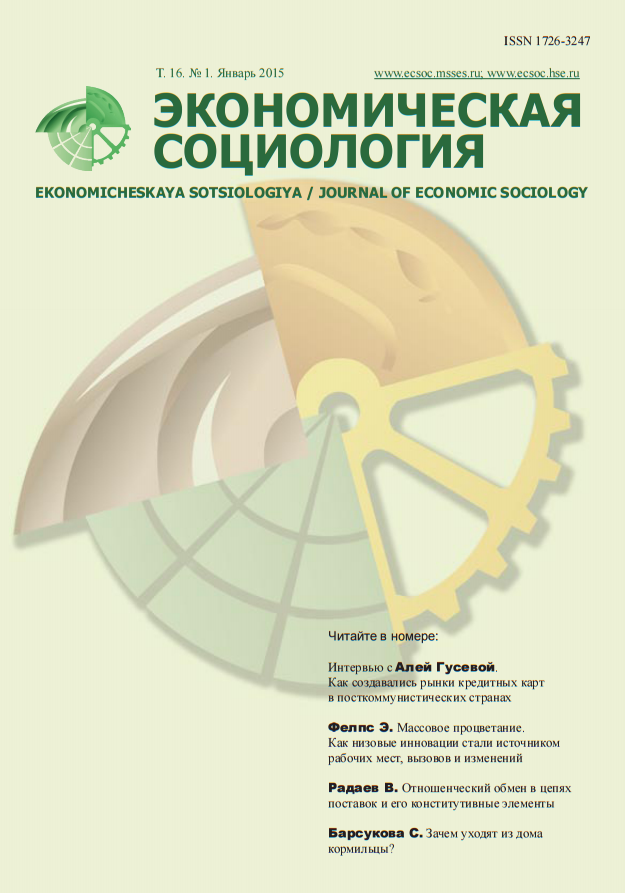Mass Flourishing: How Grassroots Innovation Created Jobs, Challenge, and Change (an excerpt)
Как низовые инновации стали источником рабочих мест, вызовов и изменений
Abstract
The presented book “Mass Flourishing” by Edmund Phelps, winner of the 2006 Nobel Economics Prize, proposes a new perspective on what the prosperity of nations is. According to the author, the prosperity at a national scale comes from the broad involvement of people with innovations. These processes of innovation serve as a source of dynamism for economic development but can be restricted by institutions if not fueled by the right values. However, in the XX century, the history of the prosperity of the Western world, which began in the XIX century, stopped partially due to the fact that the understanding of what the prosperity means was lost and institutions were diluted by conservative values resistant to modern life. For instance, there are calls for greater social security and for more attention to the value of communities and families. Moreover, Phelps develops a new concept of economy that is both modern and fair. The Journal of Economic Sociology publishes the book’s introduction “Advent of the Modern Economies”, in which the author indicates the roots of modern economies from the XIXth to the first half of the XX century. The flourishing of modern economies came to Britain and the USA, later to France and Germany. The peculiarities of modern economies include conditions within the frameworks of those ordinary people with different talents having opportunities for personal development and self-expression.













